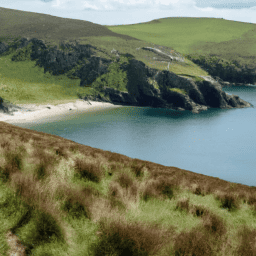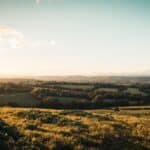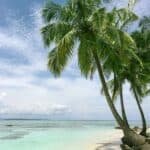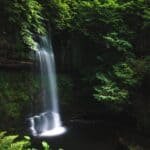Planning a camping trip to Cork, Ireland? Look no further! This comprehensive guide has got you covered. From traditional campsites to luxury options, it lists 11 amazing places where you can pitch your tent and immerse yourself in the stunning beauty of Cork. Each campsite is accompanied by a detailed description and key features, making it easier for you to choose the perfect spot. But that’s not all – if you’re a fan of wild camping, we’ve got you covered too! Discover the popular places for wild camping in Cork, along with important reminders about leaving no trace and obtaining permission for private land. Plus, we’ve got specific recommendations for wild camping in West Cork, including the breathtaking Beara Peninsula, scenic Barleycove Beach, idyllic Sherkin Island, and the beautiful Inchydoney Beach. So pack your bags, grab your tent, and get ready for an unforgettable camping adventure in Cork, Ireland!
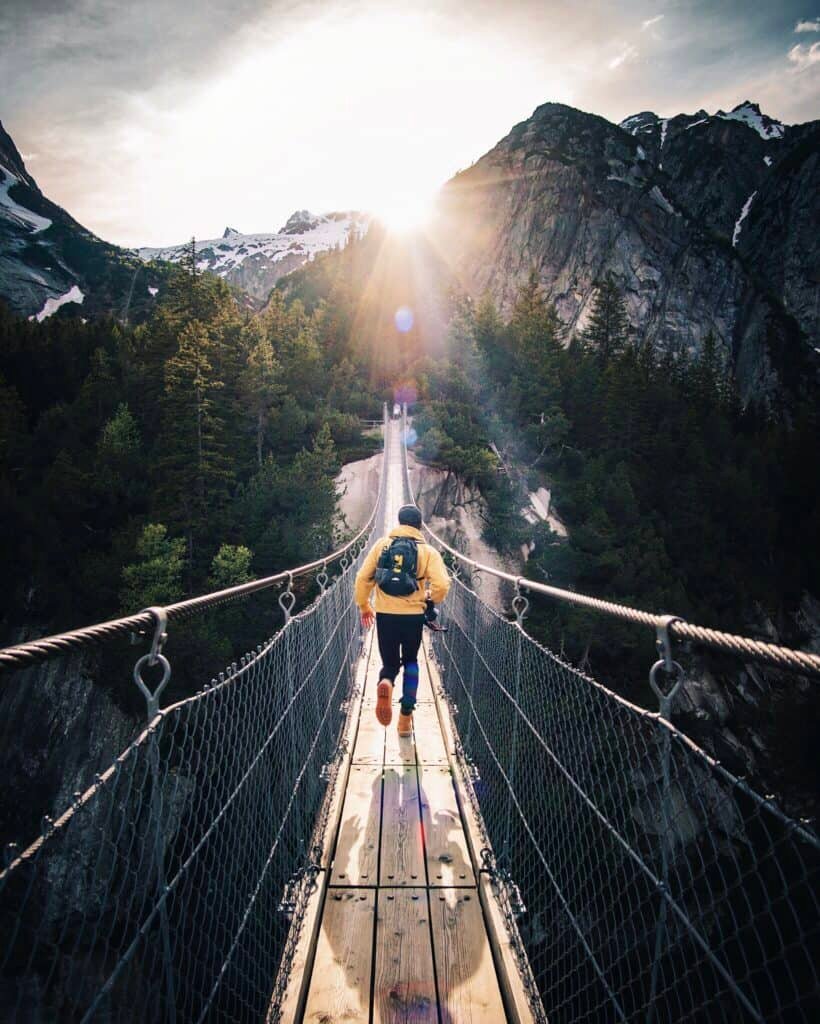
Understanding Camping Regulations in Cork
Cork, Ireland is a magnificent destination for camping enthusiasts who are looking to explore the great outdoors and connect with nature. However, before embarking on your camping adventure, it is crucial to understand the camping regulations in Cork. By adhering to these regulations, we can ensure that we protect the delicate environment and preserve the natural beauty of the area for future generations. One of the key principles that every camper should adhere to is the ‘Leave No Trace’ policy.
The importance of ‘Leave No Trace’
The ‘Leave No Trace’ principle is a fundamental aspect of responsible camping in Cork, as well as in any natural environment. The core principle behind ‘Leave No Trace’ is to leave the campsite as you found it – or even better. This means that you should take all your rubbish with you when you leave, dispose of waste in designated bins or recycling facilities, and avoid damaging or altering the natural surroundings. By following this principle, we can ensure that the beauty of Cork’s landscapes remains intact and unspoiled for everyone to enjoy.
Permission and rules for camping on private land
While public camping grounds are readily available in Cork, camping on private land may require permission from the landowner. It is important to respect the rights of landowners and seek their permission before setting up camp on their property. This not only shows courtesy and respect, but it also helps to maintain positive relationships between campers and landowners. Additionally, each landowner may have their own set of rules or guidelines for campers, so it is essential to inquire about any specific regulations before pitching your tent.
Designated wild camping spots by Coillte
For those seeking a more adventurous camping experience, Coillte, the state organization responsible for the management and promotion of Ireland’s forests, has designated specific areas for wild camping in Cork. These designated spots provide campers with the opportunity to immerse themselves in the rugged beauty of wilderness areas while adhering to responsible camping practices. The Coillte website provides information on these designated areas, including maps and guidelines, ensuring that campers can enjoy their experience without causing any harm to the environment.
Traditional Camping Sites in Cork
If you prefer a more established and structured camping experience, Cork offers several traditional campsites that cater to a wide range of needs and preferences. These campsites provide essential amenities and facilities to ensure a comfortable and enjoyable camping experience.
Overview of traditional camping in Cork
Traditional campsites in Cork offer campers the convenience of well-maintained pitches, toilet and shower facilities, and sometimes even on-site shops or restaurants. These campsites are popular among families and those who appreciate the convenience of modern amenities while still being able to enjoy the beauty of nature.
Featured traditional campsites
One of the popular traditional campsites in Cork is the Eagle Point Camping & Caravan Park, located in Ballylickey. This campsite boasts stunning views of Bantry Bay and provides campers with access to various water-based activities such as kayaking and fishing. Another notable campsite is the Blue Pool Ferry Caravan & Camping Park in Cloghroe, offering spacious pitches, a playground, and easy access to both Cork City and the picturesque Lee Valley.
Amenities and attractions at traditional campsites
Traditional campsites in Cork offer a range of amenities to cater to the needs of campers. These amenities can vary from campsite to campsite but often include well-maintained toilet and shower facilities, laundry rooms, waste disposal areas, and designated cooking and picnic areas. Some campsites also provide additional facilities such as on-site shops, playgrounds, swimming pools, and even Wi-Fi access. Moreover, being situated in close proximity to Cork’s scenic attractions, these campsites offer easy access to hiking trails, cycling routes, and historical landmarks.
Booking and regulations at traditional campsites
To ensure a smooth camping experience, it is advisable to book traditional campsites in advance, especially during peak seasons. Campsite regulations typically include guidelines on noise levels, campfire restrictions, and the use of communal facilities. By familiarizing yourself with these regulations, you can help maintain a harmonious and enjoyable camping environment for all campers.
Luxury Camping Options in Cork
For those seeking a camping experience that combines the joys of the outdoors with a touch of luxury, Cork offers several luxury camping options, also known as ‘Glamping’.
Introduction to luxury camping or ‘Glamping’
Luxury camping, or ‘Glamping’, offers a unique and stylish alternative to traditional camping. It allows campers to enjoy the comforts and amenities of a hotel while still being immersed in the beauty of nature. Glamping accommodations often include spacious tents or cabins with cozy beds, heating systems, private bathrooms, and even fully-equipped kitchens.
Overview of luxury campsites in Cork
Cork boasts a range of luxury campsites that provide campers with top-notch accommodations and facilities. One such campsite is Ballyvolane House, which offers luxurious Glamping options in beautifully furnished tents set within their private estate. Another popular destination is the Warren Beach Glamping Experience, located near Rosscarbery, which offers panoramic sea views and a truly unique camping experience.
Amenities and attractions at luxury campsites
Luxury campsites in Cork go above and beyond to provide campers with a comfortable and memorable experience. Amenities can include communal areas with fire pits, BBQ facilities, hot tubs, and spas. Some luxury campsites also offer access to exclusive activities such as horseback riding, wine tasting, or stargazing sessions. With their picturesque locations, luxury campsites in Cork are often situated near scenic attractions, allowing campers to explore beautiful hiking trails, tranquil lakes, or charming villages.
Price ranges for luxury camping
While luxury camping does come with added amenities and comfort, it is important to consider the additional cost involved. Prices for luxury camping in Cork can vary depending on the location, season, and the level of luxury provided. It is advisable to check the pricing and availability of luxury campsites in advance to ensure they align with your budget and preferences.
Wild Camping in Cork
For the most adventurous campers, wild camping in Cork offers an unparalleled opportunity to disconnect from the modern world and immerse oneself in the untamed beauty of nature.
What is wild camping?
Wild camping refers to camping in unregulated and remote areas, often away from designated campsites. It involves pitching a tent in the wilderness, whether it be by the coastline, in the woods, or on the mountainside. Wild camping provides a unique experience, allowing campers to fully appreciate the solitude and natural surroundings.
Popular spots for wild camping in Cork
Cork is abundant with breathtaking landscapes that are perfect for wild camping. The Sheeps Head Peninsula, located on the southwestern coast, offers stunning views of rugged cliffs and rolling hills. The Gougane Barra Forest Park, with its tranquil lakes and dense woodlands, is another favorite among wild campers. Additionally, the Blackwater Valley provides a serene backdrop for those who seek solitude amongst nature.
Essentials for wild camping
Wild camping requires careful planning and preparation. It is vital to bring essential camping gear, such as a sturdy tent, sleeping bag, camping stove, and appropriate clothing for varying weather conditions. Additionally, it is crucial to carry a sufficient amount of drinking water, food supplies, and ensure proper waste management practices.
Safety and legal considerations for wild camping
While wild camping in Cork can be a thrilling experience, it is essential to prioritize safety and adhere to legal requirements. Firstly, it is important to familiarize yourself with the local regulations regarding wild camping. This includes understanding any restrictions on open fires and potential permits required for camping in certain areas. Secondly, wild campers should always notify a reliable person of their planned location and duration of stay. Lastly, being aware of potential hazards such as uneven terrain, wildlife encounters, and changing weather conditions is crucial for a safe and enjoyable experience.
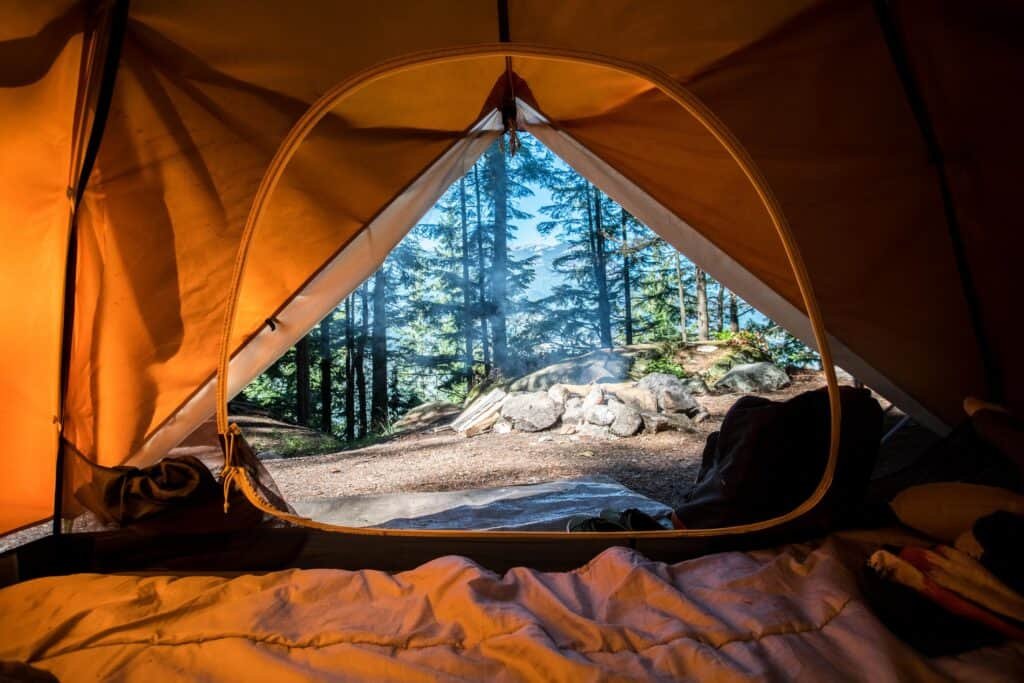
Wild Camping in West Cork
West Cork is a stunning region of Ireland known for its unspoiled landscapes and scenic beauty. For those seeking wild camping opportunities in this region, there are several recommended spots that offer unparalleled camping experiences.
Recommended spots for wild camping in West Cork
One of the top recommendations for wild camping in West Cork is the Beara Peninsula. This remote and rugged peninsula boasts a rich natural heritage and breathtaking vistas. With secluded coves, ancient ruins, and hidden walking trails, the Beara Peninsula offers a truly immersive wild camping experience. Another recommended spot is Barleycove Beach, a pristine sandy beach surrounded by rolling sand dunes and stunning coastal scenery.
Wild camping at the Beara Peninsula
The Beara Peninsula, located between County Kerry and County Cork, offers a multitude of options for wild camping. Campers can choose to pitch their tent close to the shoreline, overlooking the crashing waves of the Atlantic Ocean, or find a peaceful spot amidst the rolling green hills. Exploring the various hiking trails and ancient sites, such as stone circles and ring forts, is a must-do while camping in this unique location.
Wild camping at Barleycove Beach
Barleycove Beach is a hidden gem nestled in the picturesque surroundings of County Cork. This tranquil beach offers campers the chance to set up camp right by the water’s edge, allowing for stunning sunrise and sunset views. The peacefulness of the beach, coupled with the soothing sound of the waves, creates a serene atmosphere for a remarkable camping experience.
Wild camping on Sherkin Island
Sherkin Island, located off the coast of West Cork, is a serene and unspoiled paradise for wild camping enthusiasts. With its sandy beaches, lush vegetation, and diverse wildlife, Sherkin Island offers a true escape from the hustle and bustle of everyday life. Camping on this remote island allows campers to immerse themselves in the beauty of the island, watch the sunset over the Atlantic, and experience the tranquility of nature.
Wild camping at Inchydoney Beach
Inchydoney Beach, situated near Clonakilty in West Cork, is renowned for its pristine sands and surf-friendly waves. This popular spot offers campers the opportunity to set up camp in the dunes overlooking the beach, providing breathtaking views of the Atlantic Ocean. Exploring the surrounding coastline and indulging in water sports activities are some of the highlights of camping at Inchydoney Beach.
Camping Gear and Essentials
Having the right camping gear and essentials is essential for a comfortable and enjoyable camping experience. Whether you are opting for traditional camping, luxury camping, or wild camping, here is a checklist of essential items to consider.
Essential camping gear checklist
- Tent: Choose a sturdy and waterproof tent that suits your needs and the size of your camping party.
- Sleeping bags and sleeping pads: Ensure you have warm and comfortable bedding to get a good night’s sleep.
- Camping stove and cookware: A portable stove and cookware will allow you to prepare meals at your campsite.
- Lighting equipment: Headlamps, lanterns, and flashlights are essential for evening activities and navigating in the dark.
- Camping chairs and tables: Comfortable seating and a portable table can greatly enhance your camping experience.
- First Aid kit: Be prepared for any minor injuries or illnesses with a well-stocked First Aid kit.
- Water containers: Carry an ample supply of drinking water or consider investing in a water purification system.
- Personal hygiene items: Bring toiletries, toilet paper, and hand sanitizer for cleanliness and sanitation.
- Clothing and footwear: Pack appropriate clothing for varying weather conditions, including rain gear and sturdy footwear.
- Navigation tools: A map, compass, or GPS device can help you navigate unfamiliar terrain or trails.
- Insect repellent and sunscreen: Protect yourself from insect bites and harmful UV rays.
Extra gear for luxury and winter camping
For luxury camping or winter camping, there are additional items you may want to consider packing.
For luxury camping:
- Decorative items: Bring personal touches such as fairy lights, rugs, or comfortable cushions to create a cozy home-away-from-home.
- Portable speakers: Enhance your camping atmosphere with music or podcasts using portable speakers.
- Campfire cooking equipment: Invest in items such as grill grates, Dutch ovens, or skewers to enjoy gourmet meals over the campfire.
- Entertainment options: Bring books, board games, or musical instruments to keep yourself entertained during downtime.
For winter camping:
- Insulated clothing and sleeping gear: Stay warm by investing in high-quality insulated clothing, sleeping bags, and sleeping pads.
- Hot water bottles or hand warmers: These items can provide much-needed warmth during cold nights.
- Proper winter equipment: Depending on the conditions, you may need snowshoes, ice axes, or crampons for safe travel.
Where to buy or rent camping gear in Cork
If you do not have your own camping gear or prefer not to carry it with you, there are several options for renting or purchasing equipment in Cork. Outdoor specialty stores, camping supply stores, and even some general retailers offer a wide range of camping gear for rent or purchase. It is advisable to check prices, availability, and quality before making a decision. Additionally, many campsites also provide rental services for camping equipment, making it convenient for campers to acquire the necessary gear on-site.
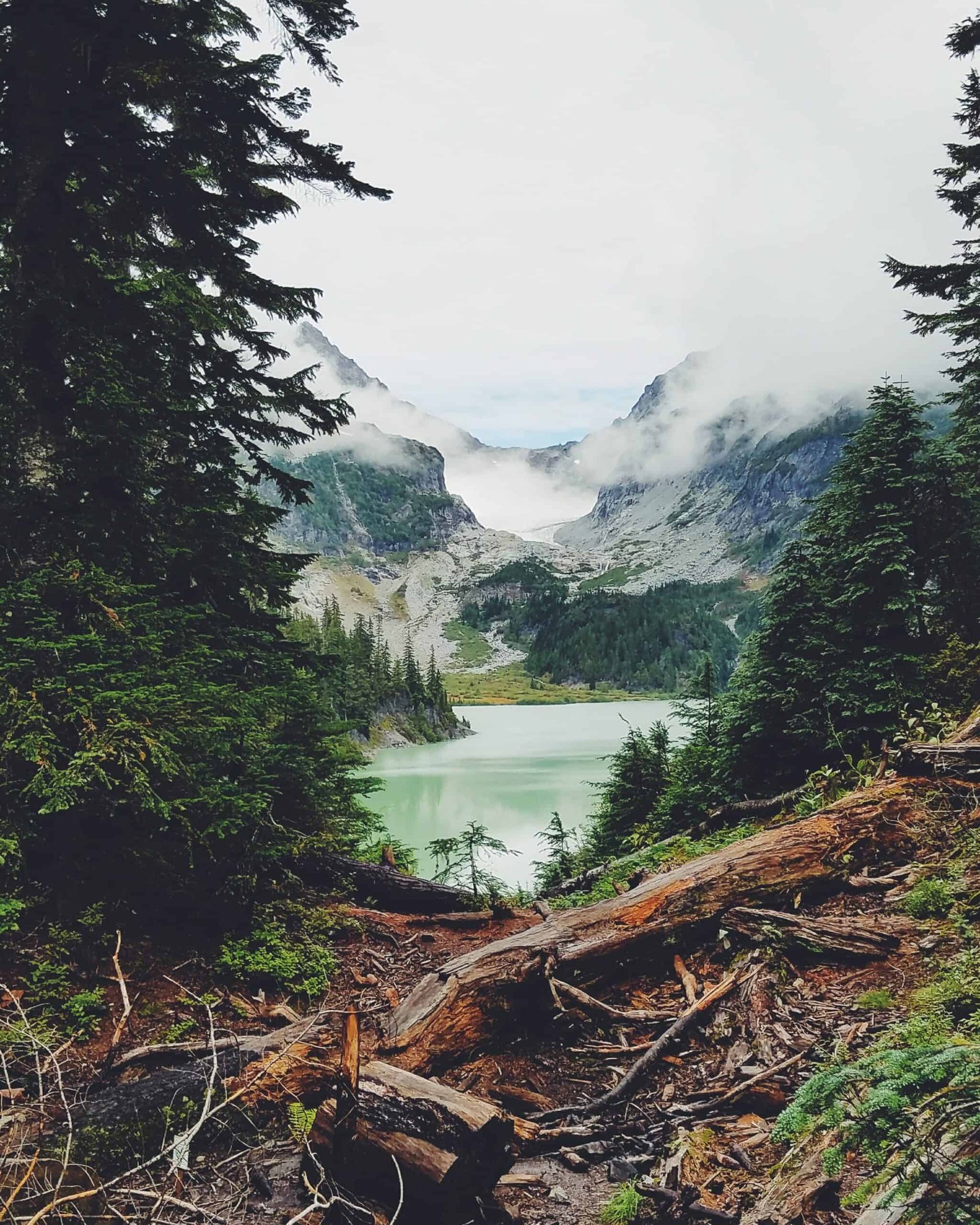
Camping Etiquettes and Safety Measures
Camping etiquettes and safety measures are essential for maintaining a pleasant camping atmosphere and ensuring the well-being of all campers.
Camping etiquettes to follow
- Respect other campers: Maintain a reasonable distance from other campers to allow privacy and reduce noise disturbances.
- Keep noise levels low: Avoid loud music, excessive noise, or disruptive activities that may disturb other campers or wildlife.
- Leave no trace: Follow the ‘Leave No Trace’ principle by properly disposing of waste, minimizing impact on the environment, and leaving the campsite as you found it.
- Campfire safety: If campfires are allowed, ensure you follow all safety guidelines and extinguish fires completely before leaving the campsite or going to sleep.
- Respect wildlife: Observe wildlife from a distance and avoid feeding or approaching them.
- Be considerate of the environment: Stick to designated trails and avoid damaging vegetation or fragile ecosystems.
Basic safety measures for campers
- Be prepared: Familiarize yourself with the camping location, potential hazards, and weather conditions before setting out.
- Carry a first aid kit: Be equipped with a basic first aid kit to treat minor cuts, scrapes, or other injuries.
- Stay hydrated: Drink plenty of water, especially during hot weather or physical activity.
- Keep a safe distance from wildlife: Observe wildlife from a distance and avoid disturbing or provoking them.
- Be mindful of weather conditions: Monitor weather forecasts and be prepared for sudden changes in conditions, such as storms or extreme temperatures.
- Plan for emergencies: Have emergency contact information readily available and inform a trusted person of your camping plans and estimated return date.
Wildlife awareness and precautions
When camping in Cork, it is important to be aware of the local wildlife and take appropriate precautions.
- Wildlife observation: Observe wildlife from a safe distance and avoid approaching or attempting to feed them.
- Food storage: Properly store food and dispose of any waste in designated containers to avoid attracting wildlife.
- Keep a clean campsite: Maintain a clean campsite by washing dishes immediately, properly disposing of food waste, and storing leftovers securely.
- Be cautious of nesting areas: Respect nesting areas and breeding grounds, especially during specific seasons when certain wildlife is more vulnerable.
- Bear safety: If camping in areas with a bear population, follow bear safety guidelines such as properly storing food, avoiding strong food smells in your campsite, and making noise when hiking to alert bears of your presence.
Weather Conditions and Best Time for Camping in Cork
Understanding the weather conditions and choosing the best time for camping in Cork is crucial for a successful and enjoyable camping experience.
Weather and climate in Cork
Cork experiences a temperate maritime climate, characterized by mild winters and cool summers. The region receives moderate rainfall throughout the year, with the highest precipitation occurring during the winter months. Summers are generally comfortable, with average temperatures ranging from 15-20°C (59-68°F), while winters can be damp and chilly, with temperatures averaging around 5-10°C (41-50°F).
Best seasons for camping in Cork
The best time for camping in Cork is during the summer months, which run from June to August. During this time, temperatures are milder, days are longer, and rainfall is generally less frequent than in other seasons. This period offers the best opportunity to explore the diverse landscapes of Cork and engage in outdoor activities comfortably. However, it is important to note that the weather in Ireland can be unpredictable, and it is advisable to pack clothing suitable for varying conditions.
Preparations for different weather conditions
Given the changeable weather patterns in Cork, it is essential to be prepared for different weather conditions when camping. Regardless of the season, it is advisable to bring layered clothing, including waterproof and windproof outerwear. Additionally, pack appropriate footwear for varying terrains and conditions. For camping during colder months or in elevated areas, it is important to carry thermal clothing, warm sleeping bags, and insulating sleeping pads to ensure a comfortable night’s sleep. It is also wise to consult weather forecasts and be prepared for sudden changes in weather conditions by having a backup plan or alternative activities.
Trekking and Hiking Routes Near Campsites
Cork is blessed with an abundance of hiking and trekking routes that cater to all fitness levels and interests. These scenic trails offer a perfect opportunity to explore the beauty of nature while camping in Cork.
Popular hiking trails in Cork
- The Ballyhoura Way: This long-distance trail covers 89 kilometers (55 miles) across the Ballyhoura Mountains. It provides stunning views of the surrounding countryside and incorporates sections of forest, farmland, and historical sites.
- The Beara Way: This 196-kilometer (122-mile) trail takes hikers along the breathtaking Beara Peninsula, showcasing its rugged coastline, mountain peaks, and picturesque villages.
- The Sheep’s Head Way: This 88-kilometer (55-mile) trail traverses the beautiful Sheep’s Head Peninsula, offering spectacular coastal views, charming villages, and lush green landscapes.
- The Gougane Barra Forest Park: Within the forest park, there are several walking and hiking trails that meander through the captivating woodlands and around the tranquil lakes.
Trekking routes for different fitness levels
Cork offers hiking routes suitable for all fitness levels, from leisurely strolls to challenging treks. Some routes are relatively flat and easy, such as the Great Island Walk in Cobh or the path around Lough Hyne. These routes are perfect for beginners or those who prefer a more leisurely pace. For intermediate or experienced hikers, trails like the Beara Way or the Sheep’s Head Way offer more demanding terrain and longer distances, rewarding hikers with breathtaking views and a sense of adventure.
Safety measures for hikers
When hiking near camping sites in Cork, it is important to prioritize safety and be well-prepared. Here are some safety measures to consider:
- Familiarize yourself with the chosen trail: Obtain a map, become familiar with the route, and be aware of potential hazards or challenging sections.
- Dress appropriately: Wear sturdy footwear and appropriate clothing for the terrain and weather conditions.
- Plan for sufficient time: Calculate the estimated time for completing the hike and ensure you have ample daylight to avoid hiking in the dark.
- Carry essential supplies: Bring a backpack with water, snacks, a first aid kit, a map, a compass, and any other necessary items for the specific hike.
- Let someone know your plans: Inform a reliable person of your hiking plans, including the chosen trail, estimated return time, and any alternate routes.
- Hike in a group or with a buddy: If possible, hike with others and maintain a safe distance from the group.
- Be aware of wildlife: Respect wildlife, maintain a safe distance, and avoid feeding or approaching animals.
- Be cautious of weather conditions: Keep an eye on changing weather conditions and adjust plans accordingly. Seek shelter or turn back if conditions become unsafe.
Local Attractions in Cork
When visiting Cork for camping, taking the time to explore the local attractions is a must. Cork is a vibrant and cultural city with a rich history, exquisite cuisine, and numerous entertainment options.
Historic and cultural attractions
- Blarney Castle: Visit the famous Blarney Castle to kiss the Blarney Stone and acquire the ‘gift of the gab’, or explore the stunning gardens and woodland walks.
- Cork City Gaol: Step back in time and explore the atmospheric Cork City Gaol, a former prison that offers a glimpse into Ireland’s history of crime and punishment.
- Cobh Heritage Centre: Discover the fascinating history of Cobh, a historic port town known as the last port of call for the RMS Titanic. The center showcases the town’s maritime heritage and its significance in the story of the ill-fated Titanic.
- Cork City Center: Take a stroll through the vibrant streets of Cork City, exploring the diverse range of shops, cafes, restaurants, and pubs. Don’t forget to visit the English Market, where you can indulge in a variety of local produce.
Popular restaurants and local cuisine
Cork is renowned for its culinary scene, with a multitude of restaurants and cafes offering a wide range of local and international cuisines. Some popular culinary experiences in Cork include:
- Seafood delights: With its proximity to the coast, Cork offers a plethora of seafood options. Indulge in freshly caught fish and shellfish dishes at renowned seafood restaurants such as The Fish Wife in Kinsale or The Electric in Cork City.
- Traditional Irish fare: Sample traditional Irish cuisine, including hearty stews, fish and chips, or a traditional Irish breakfast. Many restaurants in Cork embrace local produce and traditional cooking techniques, creating a fusion of flavors that epitomize the rich culinary heritage of Ireland.
- Farmers’ markets: Explore the local farmers’ markets in Cork, such as the English Market or the local market in Skibbereen, where you can pick up fresh produce, artisanal cheeses, homemade bread, and other regional specialties.
Shopping and local markets in Cork
Cork offers a diverse shopping experience, from high-end boutiques to quirky independent stores. Explore local crafts, artisanal products, and unique souvenirs at places like the English Market, the Old English Market, or the shops along Oliver Plunkett Street. Additionally, Cork’s regular farmers’ markets, such as the one in Mahon Point or the Mallow Farmers Market, provide an opportunity to immerse yourself in the local food and craft scene.
In conclusion, Cork, Ireland offers a wealth of camping opportunities for all types of campers. From traditional campsites with modern amenities to luxury glamping experiences and wild camping in stunning natural landscapes, Cork has something to offer every camping enthusiast. By understanding and following camping regulations, respecting the environment, and being prepared for varying weather conditions, campers can create unforgettable memories while exploring the beauty of Cork’s landscapes. Additionally, taking the time to explore the historic sites, indulge in delicious cuisine, and browse local markets further enhances the overall camping experience in Cork. So pack your camping gear, embrace the spirit of adventure, and embark on a camping journey in Cork, Ireland!

